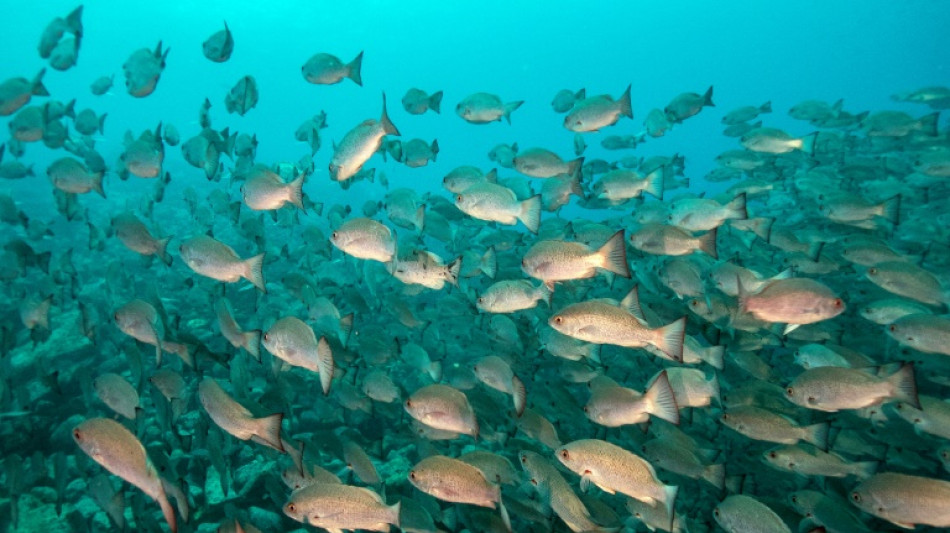
-
 Trump announces tariffs on Iran trade partners as protest toll rises
Trump announces tariffs on Iran trade partners as protest toll rises
-
Sabalenka favourite at Australian Open but faces Swiatek, US threats

-
 Gay Australian footballer Cavallo alleges former club was homophobic
Gay Australian footballer Cavallo alleges former club was homophobic
-
Trump has options on Iran, but first must define goal

-
 Paris FC's Ikone stuns PSG to knock out former club from French Cup
Paris FC's Ikone stuns PSG to knock out former club from French Cup
-
Australia's ambassador to US leaving post, marked by Trump rift
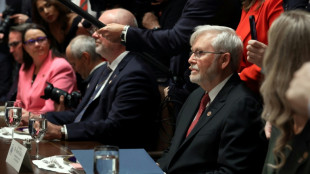
-
 Slot angered by 'weird' Szoboszlai error in Liverpool FA Cup win
Slot angered by 'weird' Szoboszlai error in Liverpool FA Cup win
-
Szoboszlai plays hero and villain in Liverpool's FA Cup win

-
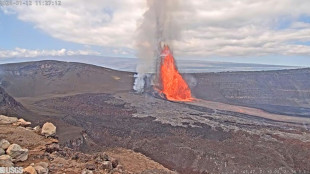 Hawaii's Kilauea volcano puts on spectacular lava display
Hawaii's Kilauea volcano puts on spectacular lava display
-
US stocks at records despite early losses on Fed independence angst
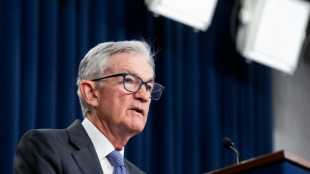
-
 Koepka rejoins PGA Tour under new rules for LIV players
Koepka rejoins PGA Tour under new rules for LIV players
-
Ex-France, Liverpool defender Sakho announces retirement

-
 Jerome Powell: The careful Fed chair standing firm against Trump
Jerome Powell: The careful Fed chair standing firm against Trump
-
France scrum-half Le Garrec likely to miss start of Six Nations

-
 AI helps fuel new era of medical self-testing
AI helps fuel new era of medical self-testing
-
Leaders of Japan and South Korea meet as China flexes muscles
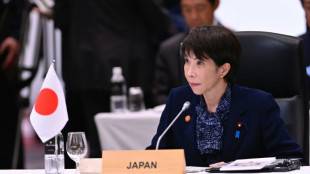
-
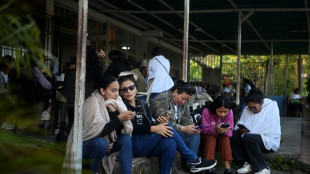 Trump sets meeting with Venezuelan opposition leader, Caracas under pressure
Trump sets meeting with Venezuelan opposition leader, Caracas under pressure
-
Australia captain Alyssa Healy to retire from cricket

-
 US 'screwed' if Supreme Court rules against tariffs: Trump
US 'screwed' if Supreme Court rules against tariffs: Trump
-
NATO, Greenland vow to boost Arctic security after Trump threats

-
 Israel to take part in first Eurovision semi-final on May 12
Israel to take part in first Eurovision semi-final on May 12
-
How Alonso's dream Real Madrid return crumbled so quickly

-
 Ex-Fed chiefs, lawmakers slam US probe into Jerome Powell
Ex-Fed chiefs, lawmakers slam US probe into Jerome Powell
-
Former Panama leader on trial over mega Latin America corruption scandal

-
 Trump keeping Iran air strikes on the table: White House
Trump keeping Iran air strikes on the table: White House
-
Paramount sues in hostile bid to buy Warner Bros Discover

-
 Ugandan opposition leader Bobi Wine warns of protests if polls rigged
Ugandan opposition leader Bobi Wine warns of protests if polls rigged
-
Airbus delivers more planes in 2025

-
 Alonso leaves Real Madrid, Arbeloa appointed as coach
Alonso leaves Real Madrid, Arbeloa appointed as coach
-
UK pays 'substantial' compensation to Guantanamo inmate: lawyer
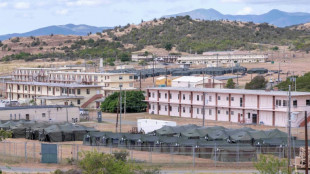
-
 Iran protest toll mounts as government stages mass rallies
Iran protest toll mounts as government stages mass rallies
-
Gold hits record high, dollar slides as US targets Fed
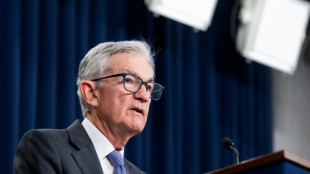
-
 Cuba denies being in talks with Trump on potential deal
Cuba denies being in talks with Trump on potential deal
-
Scientists reveal what drives homosexual behaviour in primates

-
 Venezuela releases more political prisoners as pressure builds
Venezuela releases more political prisoners as pressure builds
-
15,000 NY nurses stage largest-ever strike over conditions

-
 Rosenior plots long Chelsea stay as Arsenal loom
Rosenior plots long Chelsea stay as Arsenal loom
-
Zuckerberg names banker, ex-Trump advisor as Meta president

-
 Reza Pahlavi: Iran's ex-crown prince dreaming of homecoming
Reza Pahlavi: Iran's ex-crown prince dreaming of homecoming
-
Venezuela releases more political prisoners
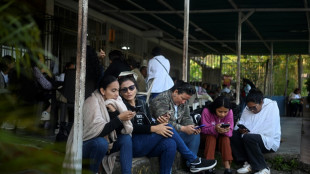
-
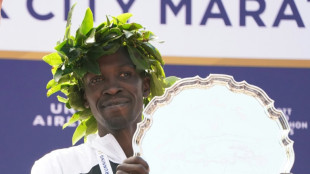 Kenya's NY marathon champ Albert Korir gets drug suspension
Kenya's NY marathon champ Albert Korir gets drug suspension
-
US prosecutors open probe of Fed chief, escalating Trump-Powell clash

-
 Russian captain in fiery North Sea crash faces UK trial
Russian captain in fiery North Sea crash faces UK trial
-
Carrick is frontrunner for interim Man Utd job: reports

-
 Iran government stages mass rallies as alarm grows over protest toll
Iran government stages mass rallies as alarm grows over protest toll
-
Variawa leads South African charge over Dakar dunes

-
 Swiss inferno bar owner detained for three months
Swiss inferno bar owner detained for three months
-
Heathrow airport sees record high annual passenger numbers

-
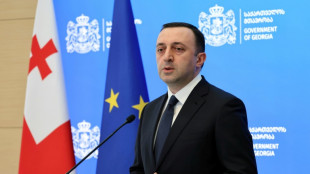 Georgia jails ex-PM for five years amid ruling party oustings
Georgia jails ex-PM for five years amid ruling party oustings
-
Kyiv buries medic killed in Russian drone strike


UN biodiversity conference: what's at stake?
The world's pledges to halt humankind's destruction of nature will be put to the test when the 16th UN conference on biodiversity opens Monday in Colombia.
The COP16, held in the city of Cali through November 1, is the first meeting of the international community since the adoption two years ago of an unprecedented roadmap to achieve that goal.
But putting that agreement into practice risks not moving fast enough to stop the destruction of land, oceans and species by a 2030 target date.
How will COP16 ensure countries achieve the 23 targets of the "Global Biodiversity Framework"? Can it unlock the billions of dollars needed? Can it guarantee the rights of Indigenous peoples?
Here's a summary of what's at stake:
- Delivering on promises -
Creating protected areas, restoring depleted land, cutting the use of pesticides, increasing funding for nature -- few of the targets humanity had previously set for 2020 have been reached.
To avoid repeating that failure, countries agreed at COP15 to create a monitoring mechanism, with common indicators to measure progress, and a possible review procedure.
But the details of this mechanism, crucial for holding countries to account, remain to be adopted.
Carrying out this negotiation will be the top agenda item of COP16 and its host Colombia, which wants to establish itself as a leader in the global fight to safeguard nature.
But parallel negotiations, notably financial, will also come into play.
- Securing national plans -
As of mid-October, only 29 countries out of 196 had submitted national biodiversity strategies to reflect their share of global efforts.
And 91 have submitted "national targets", or commitments on all or part of the targets, according to the UN Convention on Biological Diversity.
Several countries could publish their plan in Cali, and those of Colombia and Brazil are keenly awaited.
Some 12,000 delegates, including seven heads of state, are expected to attend COP16.
Under the spotlight, notably, will be the flagship target of the global framework: to place 30 percent of land and sea areas under minimum protection by 2030.
As of September, 8.35 percent of the seas and 17.5 percent of land were considered protected, according to the WWF environmental group, which uses preliminary data from the UN -- in other words, barely more than in 2022.
- Unlocking funding -
The efforts of rich countries to finance those of the developing world will be central to debates in Cali.
Developed countries have committed to providing $20 billion per year for biodiversity by 2025 and $30 billion by 2030.
By 2022, $15.4 billion had been raised, according to the Organisation for Economic Co-operation and Development (OECD).
Developing countries will also revive their calls for creating an autonomous fund, which is a major point of contention for rich countries, which are categorically opposed to setting up multiple funds.
To unlock private finance, biodiversity credits will be another major issue.
- Biopiracy -
"Biopiracy" -- the use of genetic resources in everything from cosmetics to seeds, medicines, biotechnology and food supplements without the agreement of those who preserve this traditional knowledge -- is a particularly knotty issue in negotiations.
Since 2014, the Nagoya protocol, which stipulates that persons providing genetic resources or traditional knowledge should benefit from the advantages arising from their use, has made it possible to pay for each use of a plant or animal.
However, these resources have become digitised genetic sequences or DSI (Digital Sequence Information) that almost exclusively benefit rich economies.
Resolving this is a priority for many developing countries and an agreement could be found in Cali to establish a global profit-sharing scheme.
But which companies will contribute? Will it be on a voluntary or compulsory basis? And how will the money be distributed?
"If a mandatory contribution of 0.1 percent is adopted, this potentially represents a billion dollars," said Sebastien Treyer, executive director of French think tank Iddri.
- Indigenous populations -
Indigenous populations are well represented at biodiversity COPs but often emerge the most disappointed by final decisions.
This year, they intend to use the summit taking place on the edge of the Amazon to have their rights and ancestral knowledge recognised, after years of marginalisation and forced displacement.
M.AlAhmad--SF-PST



